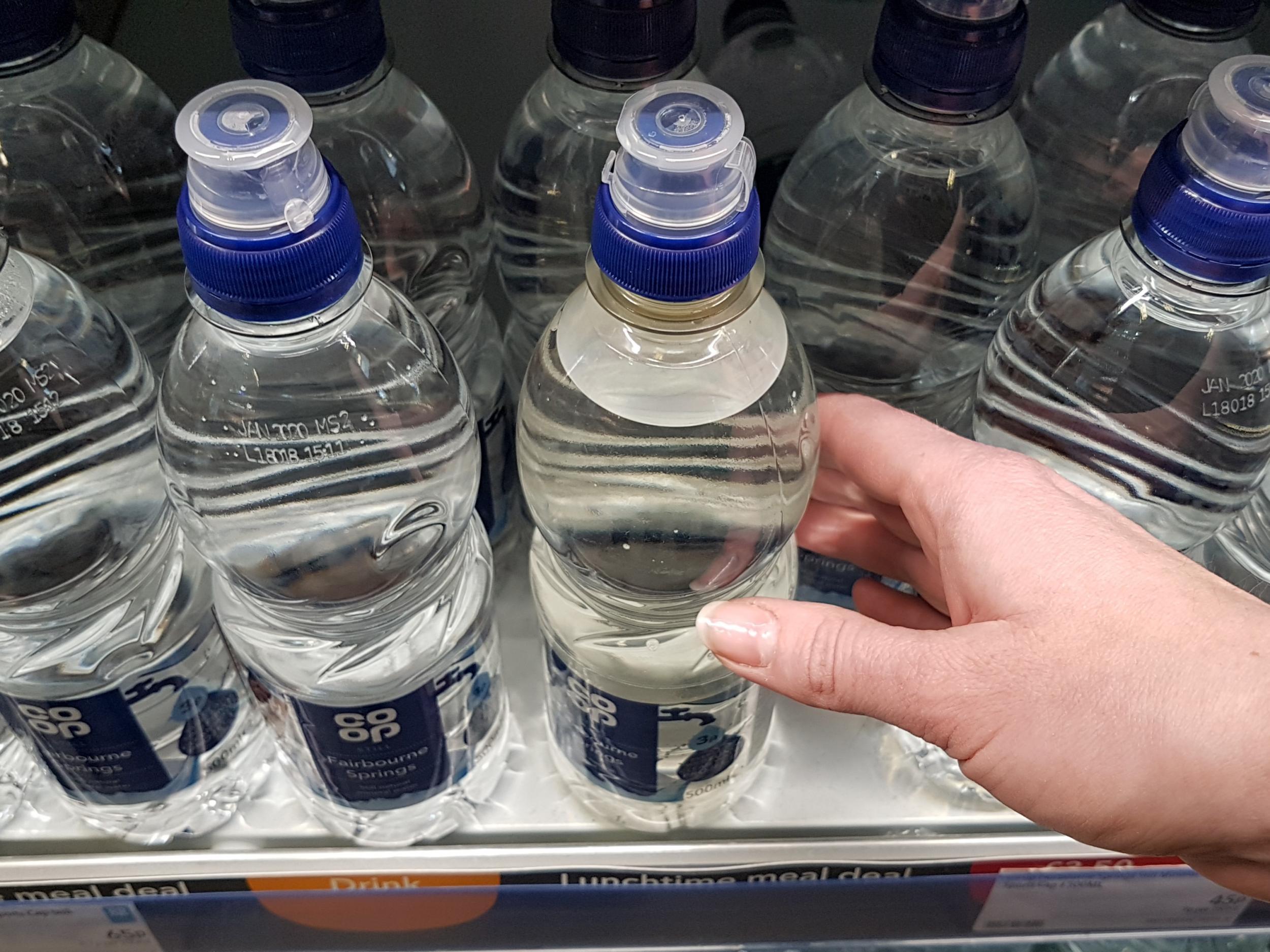Supermarket says it will stop using clear water bottles as it opts for more recycled plastic
Greyer bottles will be 'badge of honour' for customers, says Co-op
Your support helps us to tell the story
From reproductive rights to climate change to Big Tech, The Independent is on the ground when the story is developing. Whether it's investigating the financials of Elon Musk's pro-Trump PAC or producing our latest documentary, 'The A Word', which shines a light on the American women fighting for reproductive rights, we know how important it is to parse out the facts from the messaging.
At such a critical moment in US history, we need reporters on the ground. Your donation allows us to keep sending journalists to speak to both sides of the story.
The Independent is trusted by Americans across the entire political spectrum. And unlike many other quality news outlets, we choose not to lock Americans out of our reporting and analysis with paywalls. We believe quality journalism should be available to everyone, paid for by those who can afford it.
Your support makes all the difference.A UK supermarket has said it will ditch clear plastic and switch all its water bottles to a “cloudier” part-recycled material, which could prevent 350 tonnes of waste a year.
The Co-op has unveiled plans to sell all of its water in 50 per cent recycled plastic packaging which will appear slightly greyer - a “badge of honour” to eco-conscious consumers.
These bottles are 100 per cent recyclable and will be used in all Co-op’s own brand still, sparkling, and flavoured waters before the end of 2018.
The retailer told The Independent it was committed to the roll out, but it would be an interesting experiment in whether the environmental cachet would outweigh superficial factors when customers are deciding which product to pick.
“Suppliers are working hard to make the bottle clearer – and they already have – in the meantime, our bottles will wear this greyish colour which I see as a ‘badge of honour’ – we are part of the market for recycled products, and we are proud of that,” said Iain Ferguson, Co-op environment manager.
It comes on the heels of a wave of new recycling measures aimed at tackling the scourge of waste and plastic pollution poisoning our waterways and oceans.
On Tuesday, the environment secretary, Michael Gove, announced plans for a recycling deposit scheme for plastic, glass and metal containers which would see consumers get cash back for returning items.
A roll out of free water refill points in every town in England is already underway, in an attempt to prevent the tens of millions of disposable plastic bottles being bought and sent to landfills each year.
The Co-op said these initiatives would simplify and incentivise recycling to the general public, and encourage more retailers to follow suit.
Jo Whitfield, chief executive of Co-op Food, said: “We know that by working closely with our supply and waste-value chains we can find new ways of sourcing sustainable alternatives.
“Our customers expect us to respond to this challenge and help them make more ethical choices, and we’re dedicated to doing just that.”

Other changes include a reduction in black and dark coloured plastics which cannot be picked up by some recycling machines and can lead to contamination of other coloured plastics – adding at least 30,000 tonnes of waste each year.
It is trying to replace the plastic elements in its own brand tea bags, to make them entirely bio-degradable.
Campaigners said the efforts were welcome but there was a “long way to go” for the industry as a whole.
Greenpeace UK oceans campaigner, Tisha Brown, said: “The Co-op’s plans to increase the recycled content of plastic bottles and eliminate plastic that’s harder to recycle are good stepping stones to solving the problem, but there’s still a long way to go.
“UK supermarkets generate an estimated 800,000 tonnes of plastic packaging every year.
“It’s absolutely vital that major retailers up their game by setting out clear plans and deadlines to reduce plastic packaging and adopt sustainable alternatives.”
The current focus of public attention on the harm of single-use plastics can be partly attributed to the finale of the BBC’s Blue Planet series last year, which is being aired in more than 30 countries.
Mr Gove said he was “haunted” by the scenes from the documentary and even the Queen has called for action and banned plastic straws and bottles from royal estates.

Join our commenting forum
Join thought-provoking conversations, follow other Independent readers and see their replies
Comments